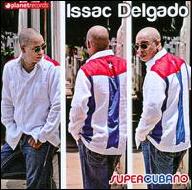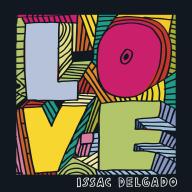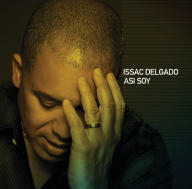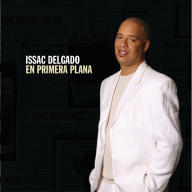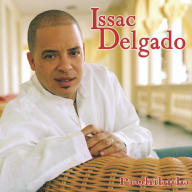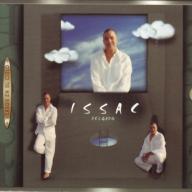Born Issac Felipe Delgado Ramirez on September 11, 1962, in Havana, Cuba, El Chevere de la Salsa grew up in an artistically talented family: his father was a tailor, his mother was an actress, singer, and dancer in El Teatro Musical de la Habana, and his oldest brother was a singer, guitarist, and composer. At age ten, Delgado entered the Amadeo Roldan Conservatory, where he studied cello for a couple years but, more interested in sports than music, left after a couple years. At age 12, he was admitted to La Escuela de Iniciación Deportiva, where he devoted himself to soccer; later, in 1979, he was admitted to El Instituto Superior de Cultura Física, where he was awarded his license in sports.
Though Delgado had devoted himself to sports for many of his teenage years after giving up the cello, his interest in music grew with age, inspired by such salseros as Ruben Blades and Cheo Feliciano. At age 18, he joined his first musical group, playing alongside Gonzalo Rubalcaba in Grupo Proyecto, and soon afterward he joined La Orquestra de Pacho Alonso, with which he had the opportunity to tour internationally. In 1987 he joined his next group, Galaxia, before moving on to yet another, NG la Banda, the following year. Generally recognized as a pioneer of timba, a uniquely Cuban derivative of salsa, NG la Banda (i.e., nueva generación -- in English, new generation), formed in 1986 by flutist José Luis Cortés, formerly of Los Van Van, was the band with which Delgado established his career and rose to fame.
Delgado sung on three of NG la Banda's albums -- No Te Compliques (1988), En la Calle (1989), and No Puede Tapar el Sol (1990) -- and toured with them extensively before departing in 1991 for a solo career. The highlights of Delgado's three-year tenure with NG la Banda are compiled on the landmark compilation En la Calle (1992) -- to some confusion, also the name of the group's aforementioned 1989 album -- and are also found on other, lesser compilations released over the years. With Delgado as their frontman, NG la Banda was awarded the Premio EGREM (i.e., Empresa de Grabaciones y Ediciones Musicales) prize in 1990-1991 for their musical ability and popularity.
In 1992, Delgado made his solo debut with Dando la Hora, an album recorded in Venezeula with Gonzalo Rubalcaba at the helm. Former NG la Banda drummer Giraldo Piloto contributed to the album's arrangements, as he would on the next few. Dando la Hora won a Premio EGREM prize in 1992, recognized as the best album recorded outside of Cuba. Delgado's second album, Con Ganas (1993), also had Rublacaba at the helm and also was recognized at the EGREM awards, this time twice -- as best dance album and also as a favorite of critics. His third album, El Chevere de la Salsa y el Caballero del Son (1993), was a collaborative effort with Adalberto Alvarez that won a Premio EGREM prize in 1994 on the basis of its popularity.
For his next album, the solo effort El Ano Que Viene (1995), Delgado partnered with Ralph Mercado's label RMM Records, which guarenteed him international distribution and thus a broader audience relative to his past releases for Artcolor. In support of the album's release, he toured extensively, performing over two-dozen concerts across Europe and several shows in New York, including a star-studded show at Madison Square Garden with Celia Cruz and others. Recorded in New York with arranger/pianist Isidro Infante, Otra Idea (1997) followed, as did another round of touring, including performances at the Guerra de la Salsa festival in Peru; Luis Munoz Marin Coliseum in San Juan, Puerto Rico; Central Park Summerstage in New York City; the Wolf Trap Jazz and Blues in Washington, D.C.; and the International Jazz Festival in Montreal.
After a final album for RMM, La Primera Noche: Desde Europa con Sabor (1998), Delgado released a pair of albums on Bis Music. He first reunited with Gonzalo Rubalcaba for the Grammy-nominated La Fórmula (2000) and then released Versos en el Cielo (2002). The latter album was inspired by the nueva trova cubana (new Cuban song) movement of the '60s and includes such songs as Corazón Corazón by Angel Quintero, Orden del Día by Frank Delgado, Identidad and Tú Mi Desengaño by Pablo Milanés, and Quien Fuera and Vamos a Andarfrom by Silvio Rodriguez. Delgado's next album, Prohibido (2005) found him reunited with producer/arranger Alain Pérez, whom he had worked with in years past.
In 2006, Delgado defected from Cuba to the United States, crossing the Mexico-Texas border with his family and settling in Tampa, FL. He in turn signed to La Calle Records, a subsidiary label of the Univision Music Group, and began collaborating not only with Alain Pérez once again but also veteran hitmaker Sergio George. The resulting album, En Primera Plana (2007), featured a duet with salsa superstar Víctor Manuelle on the hit single La Mujer Que Más Te Duele. The album was nominated for a Latin Grammy in the category of Best Salsa Album while La Mujer Que Más Te Duele was nominated for Best Tropical Song. ~ Jason Birchmeier, Rovi



